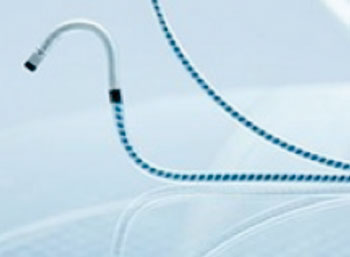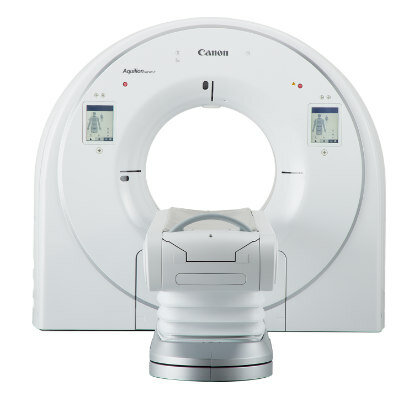First 4-F Cardiac Resynchronization MR Conditional Lead Receives CE Approval
By MedImaging International staff writers
Posted on 18 Mar 2014
A bipolar cardiac resynchronization therapy (CRT) lead is the first magnetic resonance imaging (MRI)-conditional lead with a 4-F diameter. Posted on 18 Mar 2014
Biotronik (Berlin, Germany), a cardiovascular medical technology developer that specializes in heart failure therapy, recently reported the first implantations of the Sentus ProMRI. An ultra-thin lead, it enables access to particularly challenging vessels and offers expanded pacing options. In addition to these important therapeutic benefits, the Sentus leads are unique in that they allow patients to undergo magnetic resonance imaging (MRI) scans. The new CRT lead received European market (CE) approval in early February 2014.

Image: Biotronik\'s Sentus ProMRI (Photo courtesy of Biotronik).
As heart failure patients are frequently in poor general health and over the age of 65, it is particularly important that they have MRI access. Furthermore, patients at this age frequently suffer from comorbidities that may require an MRI scan such as stroke, brain tumors, and arthritis. This increasing demand leads to an estimated 50%–75% chance that patients will be indicated for an MRI over the lifetime of their device.
Philippe Ritter, MD, Bordeaux University Hospital (France), commented, “Heart failure patients require complex disease management. Particularly as patients age and develop comorbidities, they may need an MRI scan-the gold standard for soft tissue imaging. Biotronik ProMRI leads and implantable devices allow me to offer my heart failure patients reliable therapy, enhancing their quality of life.”
“With Biotronik home monitoring, I can continuously monitor a therapy’s effectiveness and react quickly if the patient’s condition changes or deteriorates,” said Christof Kolb, MD, German Heart Center (Munich, Germany). “This is particularly important for heart failure patients, as their status can change quickly and often.”
Heart failure is a complex disease characterized by the progressive weakening of the cardiac muscle. Approximately 1%–2% of the adult population in developed countries has heart failure. Among those 70 and older, the prevalence rises to about 10%. The disease is associated with a dyssynchronous contraction pattern of the heart ventricles, which can be treated with CRT. Clinical studies have shown CRT’s effectiveness in reducing the risk of heart failure events and re-hospitalization. The IN-TIME study, presented September 2013 European Society of Cardiology conference, held in Amsterdam (The Netherlands), demonstrated a reduction in all-cause mortality in heart failure patients with Biotronik home monitoring.
Related Links:
Biotronik













.jpg)
